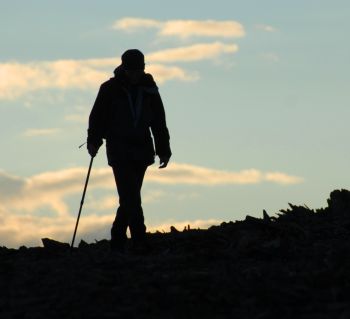Don’t be chicken, take a walk on the dark side
 The hills and trees are bathed in moonlight, but the path ahead is cloaked in darkness. Every bush seems to harbour a set of gleaming, threatening eyes and even rocks seem to move stealthily.
The hills and trees are bathed in moonlight, but the path ahead is cloaked in darkness. Every bush seems to harbour a set of gleaming, threatening eyes and even rocks seem to move stealthily.
What it is about night treks that prickles the senses so much? Is it the way the darkness transforms the familiar into the unknown; or the fact that with the deprivation of sight our other senses become more sensitive to the sounds and smells of the wild? Either way, there’s nothing quite like the rush of a trek in the jungle at night. So, don’t let that old fear of the dark keep you from venturing on a night hike.
Old terrain, new experience It’s important to pick a trail you’re familiar with on a night trek, because it’ll throw up absolutely new challenges. “Night hikes are a good time to see how people manage with the other senses,” says Professor Sudhakar Raj, who heads the Nature Club of Wilson College, Mumbai. “If you go night trekking in the monsoon, you see fireflies and a horde of nocturnal creatures. It’s an excellent way to get in touch with yourself.”
Like Raj suggests, night hikes are less about the excitement of a climb and more about how you react to the landscape in the dark. “When it’s dark, the body reacts differently to situations,” says Neville Sequeira, an avid trekker.
If you don’t know the place, find someone who does. Electronics engineer Sameer Patel, 26, a member of the Nisarga Bhraman trek group, regularly participates in night treks. “It’s best to befriend the locals while conducting reconnaissance so you can call for help any time. Never explore a place for the first time at night.”
Don’t forget the torch Yes, seriously. But if the moonlight allows it, keep it off, since the flashing lights disturb wildlife. Start your trek at dusk, while the light is still fading, so that you can get accustomed to the dark and the sounds of the night. You’ll find that a night trek is actually easier on you.
“In the summers, it’s very hot during the day, so it makes sense to trek in the night,” says Minaz Lala, who has been on various adventure trails. “If it’s a 2-3 day trek people prefer to walk in the night. You can cover a lot of distance because there is no sun, and you don’t get dehydrated.”
If you’re walking along a gorge, you can’t see just how steep it is and get scared. Pinakin Karve, 25, the founding member of adventure group Trekdi, says, “People don’t realise the kind of terrain they’ve covered in the night. They look around in the morning and can’t believe they walked up those dangerous areas so easily.”